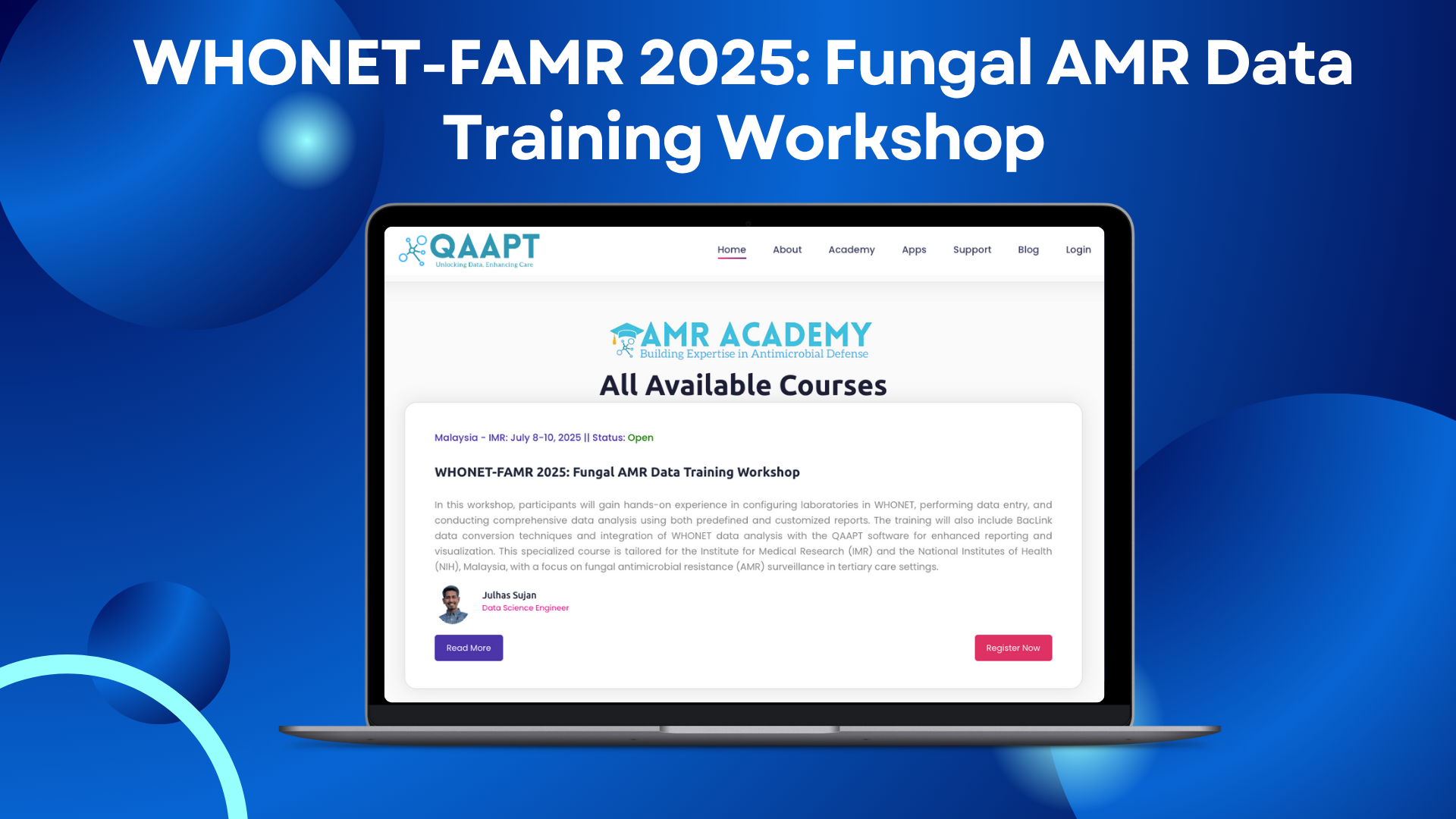| # | Time | Session | Speaker | Duration |
|---|---|---|---|---|
| 1 | 8:00 – 9:00 am | Registration for participants | All Participants | 60 Min |
| 2 | 9:00 – 9:10 am | Opening Speech and Introduction to the Resource Person | Dr. Rohaidah Hashim | 10 Min |
| 3 | 9:10 – 10:00 am | Overview of National Antibiotic Susceptibility report | Coordinator | 50 Min |
| 4 | 10:00 – 10:30 am | Introduction to the Course and AMR data management cycle | Julhas Sujan, Data Science Engineer, IVI | 30 Min |
| 5 | 10:30 – 11:00 am | Tea break | ||
| 6 | 11:00 – 11:15 am | Pre-Test using SurveyAMR.com platform | All Participants | 15 Min |
| 7 | 11:15 – 11:30 am |
|
|
15 Min |
| 8 | 11:30 – 1:00 pm |
|
|
90 Min |
| 9 | 1.00 – 2.00 pm | Lunch Break | ||
| 10 | 2.00 – 3.00 pm |
|
|
60 Min |
| 11 | 3.00 - 4.30 pm |
|
|
90 Min |
| 12 | 4:30 - 4:45 pm |
|
|
15 Min |
| 13 | 4:45 – 5:00 pm | Adjourned and tea time | ||
Course Name: WHONET-FAMR 2025: Fungal AMR Data Training Workshop
In this workshop, participants will gain hands-on experience in configuring laboratories in WHONET, performing data entry, and conducting comprehensive data analysis using both predefined and customized reports. The training will also include BacLink data conversion techniques and integration of WHONET data analysis with the QAAPT software for enhanced reporting and visualization. This specialized course is tailored for the Institute for Medical Research (IMR) and the National Institutes of Health (NIH), Malaysia, with a focus on fungal antimicrobial resistance (AMR) surveillance in tertiary care settings.
WHONET is a free desktop Windows application for the management and analysis of microbiology laboratory data with a particular focus on antimicrobial resistance surveillance developed and supported by the WHO Collaborating Centre for Surveillance of Antimicrobial Resistance at the Brigham and Women's Hospital in Boston, Massachusetts.
QAAPT, which stands for Quick Analysis of Antimicrobial Patterns and Trends, is a free, web-based tool for visualizing antimicrobial resistance data. Developed by the CAPTURA project, QAAPT is designed for use by decision-makers, including healthcare professionals, national AMR coordinators, microbiologists, technologists, and practitioners involved in AMR surveillance or microbiology laboratory work. It seamlessly integrates with WHONET software, allowing for the direct importation of WHONET SQLITE and CSV files.

